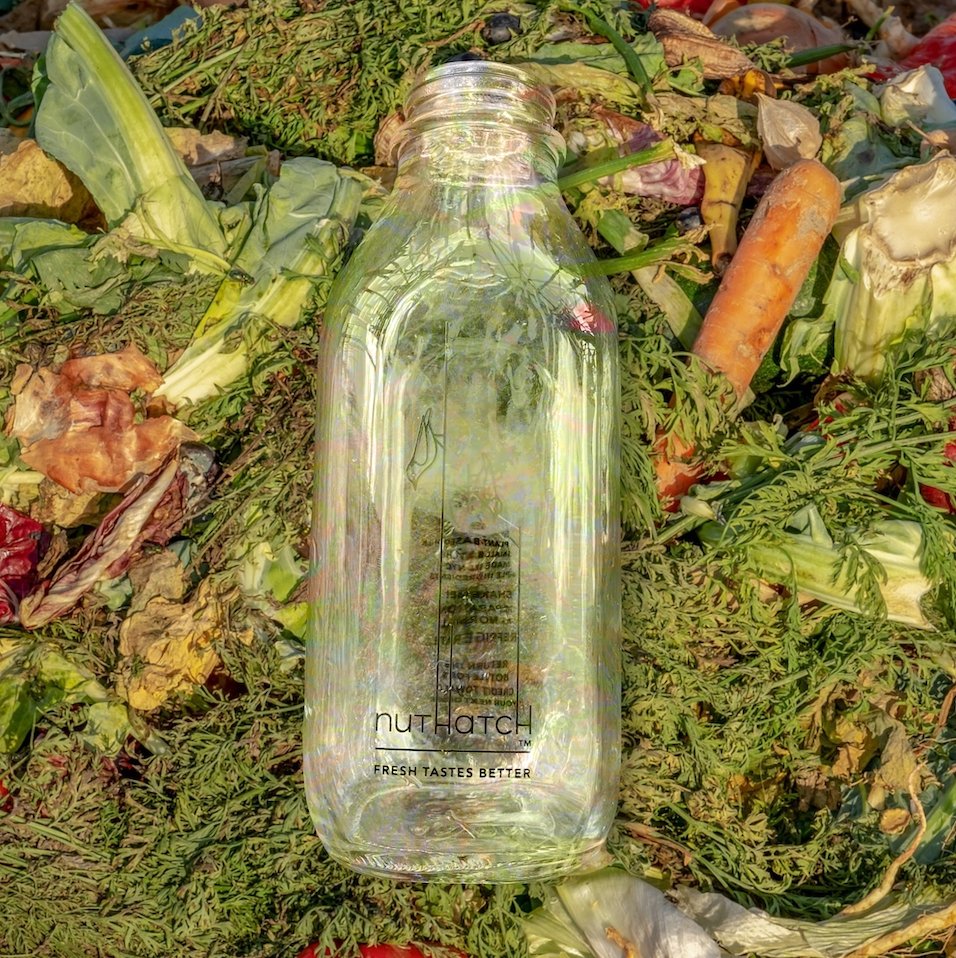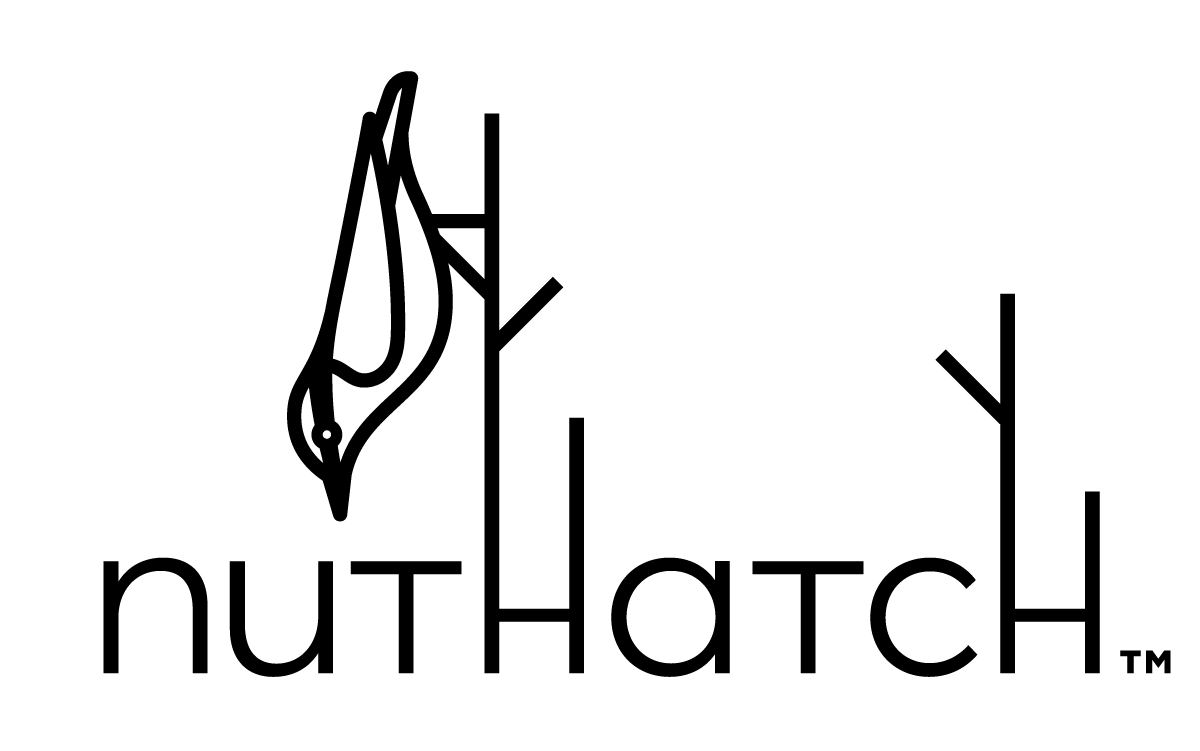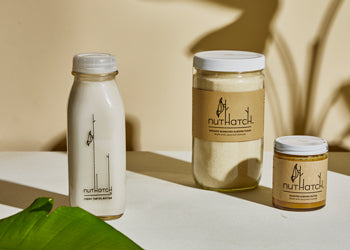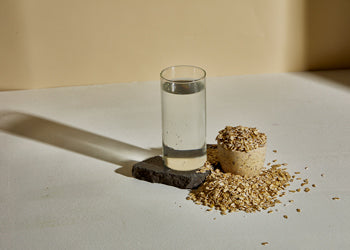
As part of Eco-April, this week we’re talking about COMPOSTING! When we learned that ⅓ of NYC trash is compostable food waste, it blew our minds. Composting is so much easier than it sounds, and anyone can help contribute to cutting down the amount of food waste that ends up in landfills.
If you aren’t already composting, that’s okay! It’s easy to get started and get involved. We firmly believe that any step toward a sustainable lifestyle, big or small, has a positive impact on our environment. After all, that is the core of what Nuthatch is all about - zero waste and sustainability!
If you’d like to read more about our sustainability practices as a small local NYC business, read our Sustainability Report here.
What is composting?
Simply put, composting is an easy and eco-friendly alternative to discarding food scraps. Instead of tossing your banana peels, egg shells, or veggies you forgot about because they were in the back of your fridge into your trash bin, you set them aside in a separate receptacle.
All that’s needed to create compost are greens, AKA food waste (nitrogen), browns (carbon), air, and water. When all of these are combined, over time all the organic matter gets broken down, or decomposed, into a nutritious soil amendment.
When we compost, we’re replicating nature’s ultimate recycling system. Plus, we’re diverting food scraps away from landfills. Because of the lack of oxygen needed for food waste to break down, the decomposition process within landfills create methane gas emissions, which is a greenhouse gas contributing to climate change…no thank you!
🗑 How to compost:
If you’re reading this, chances are you’re a New Yorker who lives in an apartment. Don’t fret - you don’t need to have acres of land or be a gardener to compost. There are 2 options when it comes to your composting approach:
1) Just collect food scraps.
With this option, all you’ll need is an air-tight container. Simply add in your food scraps over time, store the container in the freezer, and once full, drop off the food scraps at a curbside location that then takes your scraps to a commercial composting facility. There are drop-off sites all over NYC, and you can find one near you through Grow NYC’s Compost Program.
2) Make the compost yourself.
You’ll need a container where airflow is possible. To start your pile, fill the container with a thin layer of soil, browns, and greens. This isn’t necessary, but to make your compost pile even better, add in some worms! Over time, continue adding your food scraps to the compost pile. Make sure to stir the pile every day to ensure a constant flow of oxygen to the compost. This then creates an ecosystem for microorganisms like bacteria, fungi, insects, and worms, which feed off the composting and help in the decomposition process. You’ll know your compost is ready when there is no more visible organic matter. It will look dark brown, feel crumbly, and smell earthy.
NOTE: Creating the compost yourself requires you to actually deposit it somewhere. So if you do not have a backyard or are not an avid plant parent, you can donate your compost to a community garden.
What goes in a compost pile?
If you are using an NYC composting program, what you can and can’t put in a food scrap/compost pile varies. So here’s a general rule of thumb of what you can and can’t include:
✓ YES:
Greens
- Fruit and (uncooked) veggie scraps
- Tea bags
- Coffee grounds
- Egg shells
- Fresh leaves and flowers
Browns
- Dry leaves
- Twigs
- Straw (untreated)
- Woodchips
- Pine needles
X NO:
- Cooked food
- Meat
- Fish
- Poultry
- Dairy or any milk products
- Pet manure or litter
- Oils
- Used tissues and paper towels
- Coal
- Plastic
- Styrofoam
TIP: Make sure to take off any produce stickers before throwing into your compost pile - these are really easy to miss!
Benefits of composting:
- When composting, food waste can decompose in the presence of oxygen, so no methane gas is produced. This decreases greenhouse gas emissions!
- Prevents the need for chemical fertilizers
- Prevents plant diseases
- Can destroy contaminants
- Extends the life of landfills, so we don’t have to build more.
We are a local NYC zero-waste business
At Nuthatch, we do everything possible to help lower our carbon footprint, reuse, and waste not. Because of our commitment to zero-waste, we've created upcycled nut flour and upcycled almond butter using the leftover pulp from our fresh plant-based milks. If you live in NYC, you can order any of our upcycled products or plant-based milks for delivery straight to your home! PLUS - free shipping all April long for Cobble Hill.


